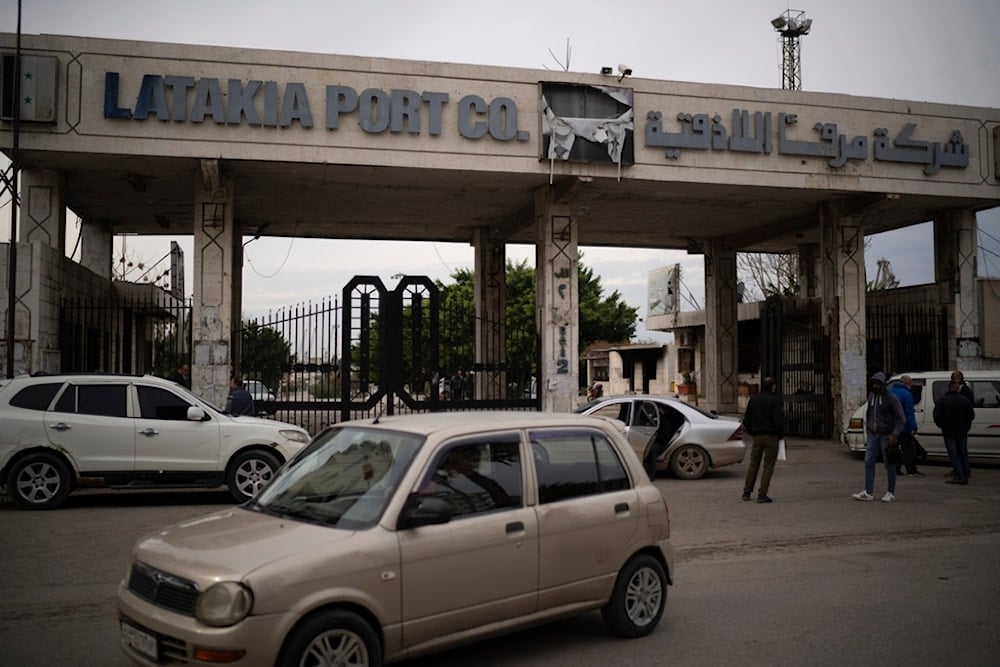Foreign Affairs warns of chaos amid Syria status quo
Foreign Affairs magazine underlines the need to stabilize and unite Syria as it faces the possibility of overwhelming chaos.
-

A car drives past the entrance of the port of Latakia, Syria, on Monday, December 16, 2024 (AP)
American magazine Foreign Affairs has expressed concerns over the current situation in Syria, outlining several steps for the international community to adopt in order to prevent chaos in the country.
In an article titled How to Hold Syria Together, the magazine analyzed the ongoing challenges and their political and security implications.
The article stated that despite celebrations over the fall of the regime, both local and international communities fear the potential for chaos, extremism, and acts of revenge.
It emphasized that governing all of Syria will be a daunting task for the new regime due to the country's demographic and geographic diversity, the presence of numerous armed groups outside of state control, and the complications posed by weak economic resources and international sanctions.
Foreign Affairs also warned that the lack of stability could trigger new waves of migration and heightened regional insecurity.
The magazine presented three key recommendations for the international community to support Syria during this critical period:
1. Promoting an inclusive and peaceful political transition.
2. Providing humanitarian and economic aid.
3. Easing the imposed sanctions.
The article concluded by stressing that the current state of disorder makes the success of the transition a shared responsibility between local actors and the international community.
UN envoy urges political process
The United Nations Special Envoy to Syria, Geir Pedersen, held discussions with Ahmad al-Sharaa (Abu Mohammad al-Jolani), the leader of Hayat Tahrir al-Sham, and Mohammad al-Bashir, the head of the caretaker government, in the Syrian capital on Monday.
In a statement, the Office of the UN Special Envoy to Syria announced, "The Special Envoy, Mr. Geir Pedersen, is in Damascus. He has so far met with Mr. Ahmad al-Sharaa, leader of the new administration, and Mr. Mohammad al-Bashir, head of the caretaker government."
During the meetings, Pedersen emphasized "the need for an inclusive and credible political transition, led and owned by Syrians, based on the principles of UN Security Council Resolution 2254 (2015)." He reaffirmed the UN's commitment to providing all possible assistance to the Syrian people and was briefed on the challenges and priorities facing the country.
The statement also noted that Pedersen is scheduled to hold further discussions in the coming days.
Meanwhile, Syrian media reported that Ahmad al-Sharaa stressed the necessity of revisiting Resolution 2254, citing shifts in the political landscape that demand an updated framework to reflect the current realities.
The UN envoy underscored the importance of fully functioning state institutions in Syria, ensuring the safety and security of all personnel. He pledged to engage with all segments of Syrian society and international organizations to provide support to the Syrian people.
Pedersen also pointed to the critical need for economic recovery in Syria, expressing hope for lifting sanctions and enabling the country to embark on a path to recovery. He called for the establishment of a judicial system that guarantees justice for all, without retaliation, and stressed the importance of achieving justice and accountability.

 3 Min Read
3 Min Read








